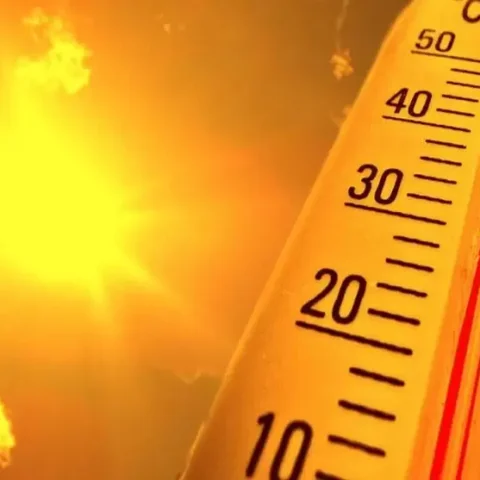With temperatures climbing to unprecedented heights, this summer is shaping up to be one of the hottest on record. As the nation swelters under relentless heat waves, it’s crucial to understand the health risks associated with extreme heat and how to stay safe. This guide will help you recognize the signs of heat-related illnesses, identify those most vulnerable, and provide practical tips to stay cool.
The Hazards of High Heat
Extreme heat can cause a spectrum of health issues, ranging from mild discomfort to severe, life-threatening conditions. The primary heat-related illnesses are heat cramps, heat exhaustion, and heat stroke, each requiring specific treatments.
Heat Cramps
- What They Are: Heat cramps are painful muscle spasms, usually occurring during or after intense physical activity in hot conditions.
- Symptoms: Muscle pain or spasms, typically in the legs or abdomen, and heavy sweating.
- Severity: Low
- Treatment: Rest in a cool place, hydrate with water or electrolyte drinks, and gently stretch and massage the affected muscles.
Heat Exhaustion
- What It Is: A more severe condition than heat cramps, heat exhaustion occurs from prolonged exposure to high temperatures, especially with high humidity and strenuous activity.
- Symptoms: Heavy sweating, weakness, dizziness, nausea, headache, and cool, moist skin.
- Severity: Moderate
- Treatment: Move to a cooler environment, drink plenty of fluids, remove tight clothing, and cool down with showers or wet cloths.
Heat Stroke
- What It Is: The most serious heat-related illness, heat stroke happens when the body’s temperature regulation system fails, leading to dangerously high body temperatures.
- Symptoms: High body temperature (104°F or higher), confusion, slurred speech, seizures, hot dry skin or profuse sweating, and rapid heartbeat.
- Severity: High (Life-threatening)
- Treatment: Call 911 immediately, move the person to a cooler place, and reduce body temperature with cool cloths or ice packs. Do not give fluids if the person is unconscious or mentally impaired.
Who is Most at Risk?
- Elderly Individuals: Reduced ability to regulate temperature.
- Infants and Young Children: Inefficient cooling systems.
- People with Chronic Medical Conditions: Heart disease, diabetes, and other conditions increase risk.
- Athletes and Outdoor Workers: Prolonged exposure and physical exertion elevate risk.
- Individuals Without Air Conditioning: Lack of a cool environment exacerbates heat-related problems.
Tips to Stay Cool
- Stay Hydrated: Drink water throughout the day and avoid alcohol and caffeine.
- Wear Appropriate Clothing: Opt for lightweight, loose-fitting, light-colored clothes.
- Limit Outdoor Activities: Plan strenuous activities for early morning or late evening.
- Take Cool Showers or Baths: Regularly cool off to lower body temperature.
- Use Fans and Air Conditioning: Spend time in air-conditioned spaces and use fans as needed.
- Stay Informed: Monitor weather forecasts and heat advisories to plan activities accordingly.
- Check on Vulnerable Individuals: Ensure the elderly and others at risk have access to cool environments and are well-hydrated.
- Use Sunscreen: Protect your skin from sunburn, which can impair your body’s cooling ability.
As we prepare for what could be the hottest summer on record, understanding the dangers of extreme heat and taking proactive measures can safeguard you and your loved ones. Stay cool, stay hydrated, and stay informed to enjoy a safe and healthy summer season.








